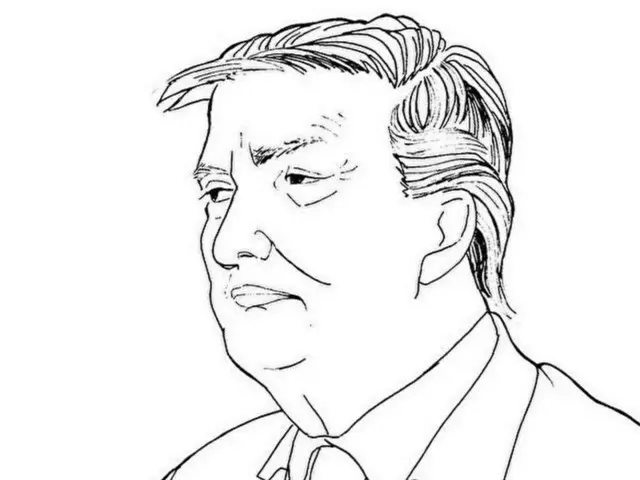He is said to prefer this approach, and has expressed his intention to promote a "package deal" with various countries, including South Korea, that brings together not only trade and tariffs but also industry, security, and other areas.
On the 8th (local time), after finishing a phone call with Acting President and Prime Minister Han Deok-soo, President Trump posted on his social media account "T
"I just had a great call with Acting President Han," he said through Truth Social. "Korea's huge and unsustainable trade surplus, tariffs, and U.S. liquidity are all important issues."
"We discussed a variety of issues, including LNG imports, shipbuilding, a joint venture on the Alaskan gas pipeline, and compensation for providing U.S. military defense," he said.
"South Korea began paying billions of dollars in defense costs during my first term, but former President Biden terminated that agreement for no reason," he said.
"Everyone was shocked when he said that," he said. During his first term in 2020, President Trump also caused friction with the South Korean government by demanding a significant increase in the US military's contribution to the cost of defense in South Korea.
At the time, the United States insisted that South Korea should increase its contribution by nearly five times, and negotiations were in a prolonged stalemate. Then, in 2021, the U.S. administration changed and President Trump
The massive increase he had requested was not realized. "We have the conditions and the potential to make a good deal for both countries," Trump said. "South Korea's best negotiating team is
"We are taking a one-stop shopping approach, negotiating not only trade and tariffs but also other issues at the same time," he added.
Jeong In-kyo, director of the trade negotiations bureau at the Ministry of Trade, Industry and Energy, is expected to visit the US on the same day and meet with U.S. Trade Representative Gurria and others to begin discussions.
This statement indicates that the US could actually push for an increase in defense spending again after President Trump takes office.
At the same time, it also suggests a "package deal" strategy that combines trade concerns, such as LNG imports and shipbuilding issues, with security issues.
With the U.S. presidential election approaching, the United States and South Korea agreed in October 2024 to raise their defense cost sharing contributions, effective from 2026, by 8.3% from the previous year to 1.5192 trillion won (approximately 149 billion yen).
The defense cost-sharing agreement, which sets the defense contribution at 1.0 billion yen and calls for annual increases in contributions until 2030 to reflect the rate of increase in the Consumer Price Index (CPI), was concluded.
However, it is becoming increasingly likely that the US will seek a new agreement to replace this one in the course of future US-South Korea dialogue. President Trump said on the same day, "China also wants a deal, but how do we start?"
"We are waiting for a call from them. Dialogue will likely take place soon," he said, reaffirming his intention to simultaneously promote multilateral trade and security negotiations.
President Trump, who decided to impose a reciprocal tariff of 34% on China, threatened to impose an additional tariff of 50% from the 9th if China announced retaliatory measures of the same rate, unless the tariffs were withdrawn.
It warns that...
2025/04/09 07:12 KST
Copyrights(C) Edaily wowkorea.jp 107

